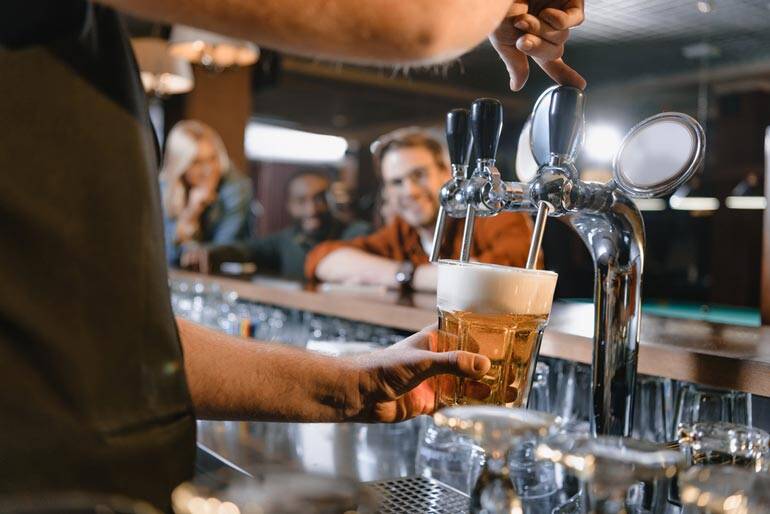Start 14-Day Trial Subscription
*No credit card required

Why Is Beer the Most Used Drink to Represent Alcohol in Popular Culture and Media?
From its cultural significance to its versatility and accessibility, beer has a long history and widespread appeal. Dive into this blog post to explore why beer is frequently used to represent alcohol and how it influences our perception of alcohol consumption and culture.
Beer and Casinos
Beer and casinos have a long-standing connection, and it is not uncommon to see people drinking beer while gambling at Canadian slots or other casino games. In fact, beer is often offered as a complimentary beverage in casinos, particularly in the United States and Canada. There are several reasons why beer is a popular choice for casinos and their patrons.
One of the main reasons why beer is offered in casinos is its ability to create a more relaxed atmosphere. Casinos are designed to be high-energy environments, with bright lights, loud noises and lots of excitement. However, for some people, this can be overwhelming, and they may feel uncomfortable or nervous. Drinking beer can help to loosen inhibitions and make people feel more relaxed, which can enhance the overall casino experience.
Another reason why beer is offered in casinos is its relatively low alcohol content compared to other alcoholic beverages. Casinos want their patrons to have a good time, but they also want them to be able to gamble responsibly. By offering beer instead of stronger alcoholic beverages, casinos can help to mitigate the risks of over-intoxication and the associated behavior that can lead to disruptions or even violence.
Finally, offering complimentary beer can also be a way for casinos to incentivize people to stay and gamble for longer periods of time. By providing a free beverage, casinos can make their patrons feel valued and appreciated, which can encourage them to continue playing slots or other casino games. This can also help to create a more social atmosphere, as people are more likely to strike up conversations with one another over a drink.
In conclusion, beer and casinos have a symbiotic relationship, with beer playing an important role in enhancing the overall casino experience. The ability of beer to create a more relaxed atmosphere and loosen inhibitions, as well as its relatively low alcohol content, make it a popular choice for casinos and their patrons. Whether playing slots or other casino games, drinking beer has become an important part of the casino experience for many people.
The Dark Side of Beer
While beer has many positive cultural and social associations, it is important to acknowledge that excessive beer consumption can have negative consequences. These consequences can include addiction, health risks and drunk driving.
Firstly, beer, like any alcoholic beverage, has the potential to be addictive. Regular and excessive beer consumption can lead to physical and psychological dependence, which can have negative effects on an individual's health and well-being. Addiction can also lead to financial, relationship and legal problems.
Secondly, excessive beer consumption can have negative health effects. Beer is high in calories and carbohydrates, which can lead to weight gain and an increased risk of obesity, type 2 diabetes and other related health issues. It can also increase the risk of liver disease, heart disease and certain types of cancer.
Finally, drunk driving is a serious risk associated with excessive beer consumption. Driving under the influence of alcohol can result in serious accidents and injuries, and can even be fatal. It is important for individuals to understand the risks associated with drunk driving and to always prioritize safety.
It is important for individuals to practice responsible drinking and moderation when consuming beer or any other alcoholic beverage. This includes setting limits on the amount of alcohol consumed, avoiding binge drinking and avoiding driving or operating heavy machinery while under the influence. Additionally, seeking help if one feels that they have developed an addiction to beer or other alcoholic beverages is important for maintaining overall health and well-being.
In conclusion, while beer has many positive cultural and social associations, it is important to acknowledge and address the negative consequences that can come from excessive beer consumption. Practicing responsible drinking and moderation can help to mitigate these risks and ensure a safe and enjoyable experience for all.



